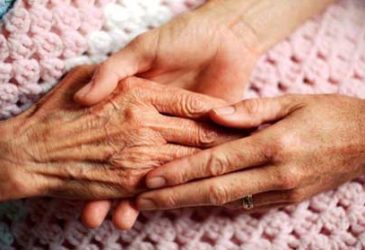A common thought of many is that hospice care is only for cancer patients or HIV sufferers. This isn’t true. Hospice care covers a wide range of medical issues at the end of life- heart failure, dementia, ALS, and COPD are just a few. Hospice care should be considered after the patient has decided to end...
read more...
Hospice-Caring for More than Cancer
The Idea of a “Good Death” and Hospice
No one likes to think or talk about death and dying. But it’s a reality we all face-more and more people are taking charge of how they will live out their final days. This becoming known as the “good death.” Through life, we want to have as many new experiences as possible but in the...
read more...
The History of Hospice
The term hospice is derived for the word “hospitality.” Dating back to medieval times, it was know as a place where ill travelers could stay during their journey. It was until 1948 was the term “hospice” used in medicine. Dame Cicely Saunders created the first modern hospice in London, St. Christopher’s Hospice. Here is a...
read more...
Hospice and Cultural Consideration

Houston is known for being the top city for cultural diversity, passing New York City and Los Angeles. Understanding how different cultures approach death is very important. Through hospice, we provide grief services for everyone involved, but cultural practices are often overlooked. There are many transitions that happen at the end of life and through...
read more...
7 Hospice Myths and Misconceptions

Hospice care isn’t always the easiest thing to talk about and many people don’t have a clear idea what hospice actually is. Even after 25 years, most Americans aren’t aware of the advantages hospice brings. This mostly comes from our country’s resistance to talk about death. However, hospice is undoubtedly this best choice for end...
read more...
Telling a loved one they have cancer
Contact: Debbie Mosbacher 832.408.7999 accreditedhospicesofamerica.com May 23,2016 Sometimes family members are the first to learn of a loved one’s cancer diagnosis. How does a family decide if they should or when they should tell the person who has the cancer? Are some people too emotionally fragile, too young, or too old to know? Most people...
read more...
The role of a Hospice Nurse
Contact: Maria Patino 832.408.7999 accreditedhospicesofamerica.com Hospice and palliative care nurses work in collaboration with other health providers (such as physicians, social workers, or chaplains) within the context of an interdisciplinary team. Composed of highly qualified, specially trained professionals and volunteers, the team blends their strengths together to anticipate and meet the needs of the...
read more...
Care and placement options in the final stages of life
Contact: Maria Patino 832.408.7999 accreditedhospicesofamerica.com A terminally ill patient’s deteriorating medical condition, increased physical safety needs, and the 24-hour demands of final-stage care often mean the primary caregiver will need additional in-home help, or for the patient to be placed in a hospice or other care facility. In many cases, patients prefer to remain at...
read more...
What is the purpose of Hospice
Contact: Maria Patino 832.408.7999 accreditedhospicesofamerica.com What is hospice care, and what is its purpose? Hospice is the term for a special program of care for terminally ill (dying) patients and their families. Rather than trying to cure an illness, hospice efforts aim to make the patient comfortable, ease pain and other troublesome symptoms and support...
read more...
What is Dementia?
Contact: Maria Patino 832.408.7999 accreditedhospicesofamerica.com Dementia is not a specific disease. It’s an overall term that describes a wide range of symptoms associated with a decline in memory or other thinking skills severe enough to reduce a person’s ability to perform everyday activities.Alzheimer’s disease accounts for 60 to 80 percent of cases.Vascular dementia, which occurs after...
read more...
